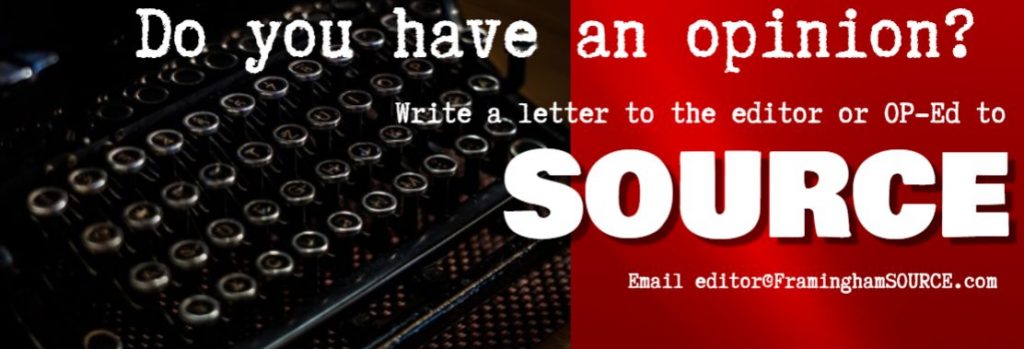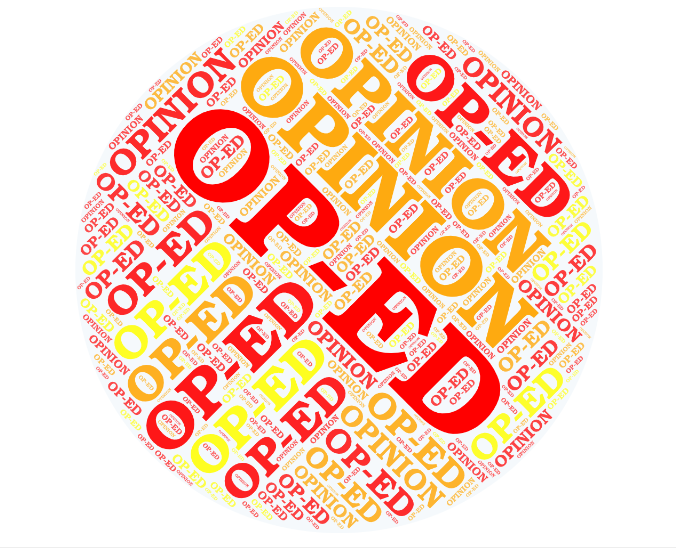By Brandale Randolph
FRAMINGHAM – As two powerful storms threaten the people of Louisiana, my mind invokes a certain set of traumatic images. While the images of the people trapped among the devastation, or being left to seek food and shelter for themselves after being abandoned by their government for weeks left a stain on the minds of many, they were just a fragment of the horror.
Being born Black and impoverished hundreds of miles south of the Mason Dixon lines come with an early introduction that the general government cares nothing about you, your family, your health, well-being, nor your life.
However, there was always a bit of optimism that at times of crisis, good people would emerge and send out a lifeline.
After the rains of Hurricane Katrina gave way to sunshine this did not happen.
While thousands were stuck inside the horrors of the Super Dome, thousands more fled the City of New Orleans in cars or on foot in search of new places to call home. The miles of traffic between New Orleans and neighboring cities such as Baton Rouge and Biloxi was encouraging. Yet, the images of White residents blocking almost every exit and offramp between New Orleans and those major cities was horrifying. It was a gentle reminder that the extension of human decency ends where people call home.
Now, In the age of the pending eviction crisis in the City of Boston in which hundreds of thousands if not millions of people who may be
seeking a better life, will be forced to flee the City that they once called home. The pending moratorium here in the City of Framingham and surrounding communities are the pickup trucks full of White men with guns, sitting at Exit 13, telling them that they are not welcomed here.
We can do better.

As soon as a vote was pending, people lashed out at local politicians with cries and false data warning people of the increased possibility of ‘traffic’, ‘overcrowded schools’, and ‘crime’.
No, those quotes are not from current events here in the City Framingham, I will get to that later.
I am speaking about what the segregationists were saying and doing in towns just to the west of Chicago when working class
Blacks were seeking to purchase homes in suburban white communities at a fraction of the prices they paid for rent in the inner city. This was in 1966 but doesn’t this type of Economic Injustice sound familiar?
The cruelty and hostility between the White of the Suburbs and the Working-Class Black seeking a better life grew into such chaos that local community activists had to call up a preacher from the deep south and get him involved. It was Rev. Dr. Martin Luther King.
People often assume that the photo of White Men holding his head down was something that they would like to believe happened in the Deep South but no, it was up near Chicago during a March toward a real estate office in the demand that working-class Blacks be allowed to purchase homes.
In fact, he is quoted as saying “I’ve been in many demonstrations all across the South, but I can say that I have never seen, even in Mississippi and Alabama, mobs as hostile and as hate-filled as I’m seeing in Chicago.”
It is criminally hypocritical for any city, including ours, to proclaim that Black Lives Matter but yet overwhelmingly, support and promote the types of economic injustice that Blacks have had to overcome for years in search of our piece of the American Dream.
The fight against Economic Injustice was Dr. King’s final fight.
However, I feel as though his support today would be no higher than it was when he passed.
If this was his fight, what side are we really on when we deny sharing our communities with Black people?
Today racism is still just as hostile. More importantly, institutional Racism is subtle. It must be.
[broadstreet zone=”58610″]
Today’s racism is based on a Whiteness that is gentle enough to unify those who still seek to wave Confederate flag to those who post Black Lives Matter signs in communities where they know about each and every black family that lives within the block but not about their adjacent white neighbors.
The subtle racism that permeates from among the loud and wrong few in the comment section of almost every community post on social media has made its way into the governmental fabric of Framingham.
It is within the discrepancy of how zoning and housing laws are enforced and protected depending on which side of Route 9 in which you reside. It is within the unspoken collective agreement that the site at General Chemical would have been cleaned if it were closer to Hemenway Elementary instead of near the appropriately named Woodrow Wilson Elementary.
It is in within the laughable penalties levied at real estate developers for not providing affordable housing units within multi-million developments to which they pay little if no property taxes to the City of Framingham.
It is within the way that properties were allowed to be developed within Framingham’s Opportunity Zone, which only exists because of the high concentration of poverty within the public housing communities, but not required to hire a percentage of residents of Framingham.
It is now within the support and even the very existence of the housing moratorium in the age of the Coronavirus under the shadow of an eviction crisis.

While I understand the need for a comprehensive study on the impact of the pending number of units, I have no faith in the results based on the questions that it will ask.
We will ask for estimates on the possible number of students who may join the Framingham Public School System but not about the
number of students who will be coming from communities where the quality of their public education is subpar.
We will ask about the number of residents who own cars but not the number of residents who may be driving those cars to places of employment where they are earning enough to save in the hopes that they could one day purchase a home of their own.
We will ask how many are employed, and not how many are self-employed as many may be simply relocating their businesses from under the brutally of the cost of commercial rent in Boston.
We will ask how many of the possible residents will be seeking affordable housing but not if they may need affordable housing after finding employment at one of our local corporate headquarters.
[broadstreet zone=”70016″]
What if the influx of people fleeing the City of Boston could be the catalyst of what this City needs to stimulate its economic growth? Are we going to choose the hope of a prosperous community or the fear of a changing community? I say we choose hope.
If the moratorium is put in place, a study won’t remove the idea that a proverbial ‘pickup truck with armed White Suburbanites was placed at the off ramp at Exit 13.
Instead of the beacon of hope that we could be, we will disappear into the monotony of the stereotype of being just another lily-white town were ‘certain people’ are tolerated but not truly welcomed.
Maybe that is just who we are.
Brandale Randolph resident and former chair of the Fair Housing Committee for the City of Framingham. Good Trouble Maker.

